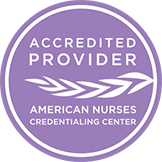Certified medication aides are responsible for giving medications in accordance with the standards discussed in this course. They are also responsible for maintaining a safe environment, including reporting problems, correctly storing and preparing medications, verifying the resident’s identity, witnessing the resident consuming the medication, and reporting medication errors.
Report to a nurse in a timely manner if the resident is uncomfortable and may need PRN medication. Let the RN know if there is any deviation from routine drug administration. Examples are refusing medication or having an unexpected reaction. Report anything about the resident that concerns you. For example, the resident does not look as good as usual or is acting funny (OAC Rule 4723-27-02, 2014).
Certified medication aides are responsible for correctly preparing and storing all medications. All medication must be kept centrally stored in a locked cabinet, locked cart, or locked storage area at all times. Controlled medications must be double-locked. Only use the medication delivery process that is currently being used by the facility. You can give medications that a nurse gives you to administer. Over-the-counter medication should be retrieved from and stored in the manufacturer’s originally labeled container. Remove the prescribed medications only if they are in the correctly labeled container in which they were dispensed. A proper medication label includes the medication name, dose, resident’s name, and expiration date (OAC Rule 4723-27-02, 2014).
Before giving a medication, check to see that you have the correct resident. Some residents will nod or say yes no matter what name you call them; therefore, have the residents tell you their name. If the resident cannot tell you their name, rely on a picture in the MAR or ask other staff to confirm the resident’s name. Make sure the resident swallows any oral medication. Sometimes, residents will hide the medication in their mouths and spit it out after they leave (OAC Rule 4723-27-02, 2014).
“Medication error means a failure to follow the prescriber's instructions when administering a prescription medication (OAC, Rule 4723-27-01 | Definitions., 2017).” Medication errors include giving outdated medications, giving the wrong medication, giving the wrong dose, taking the wrong route, administering to the wrong resident, and using the wrong technique or method. A medication error also includes failure to give the medication as ordered, incorrect preparation, storage, or administration, or giving a medication that a nurse did not delegate you to give. Immediately report and document medication errors (OAC, Rule 4723-27-01, 2017).
Distractions cause medication errors! Find a quiet place to work without a lot of noise or activity. Distractions include talking to others, talking on a cell phone, texting, watching TV, looking at social media, or listening to music. Always prepare, give, and document medications for one resident at a time. Preparing multiple residents' medication ahead of time causes medication errors.
A certified medication aide cannot accept any care assignment that would interrupt or conflict with the process of giving medication. You can be assigned to care that will not prevent you from giving medication (OAC Rule 4723-27-02, 2014).






